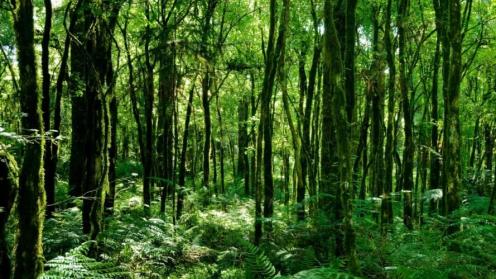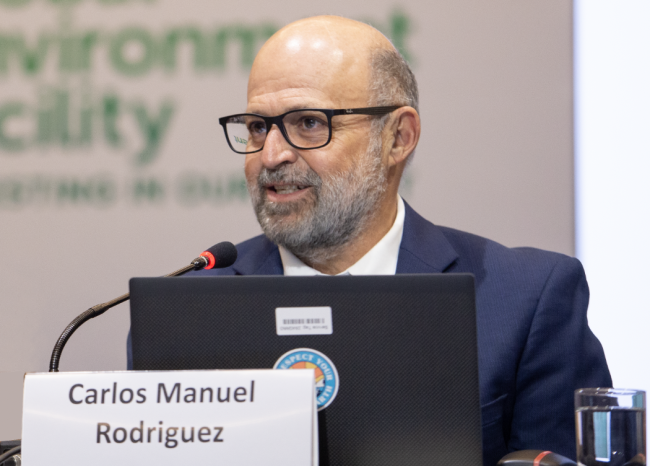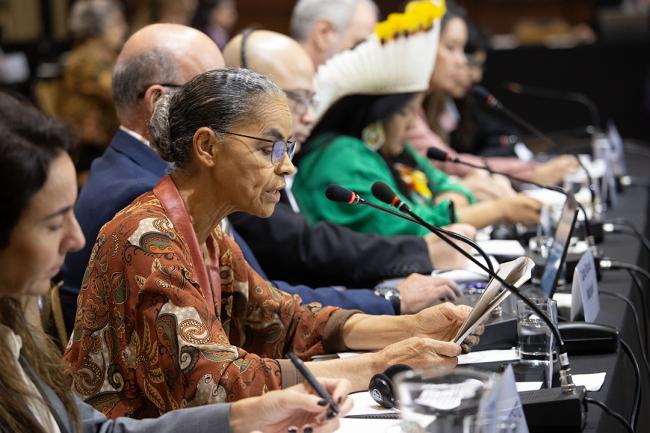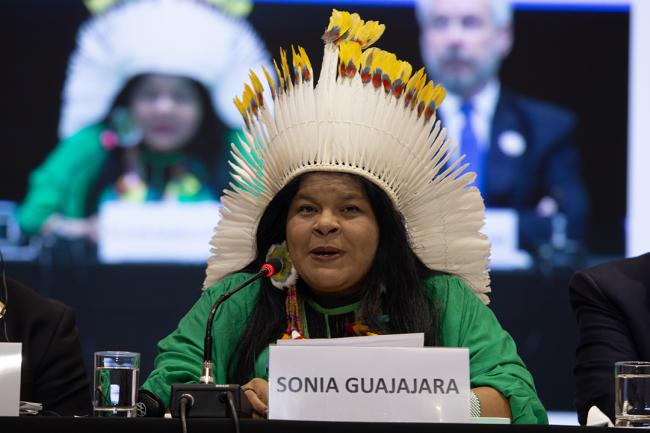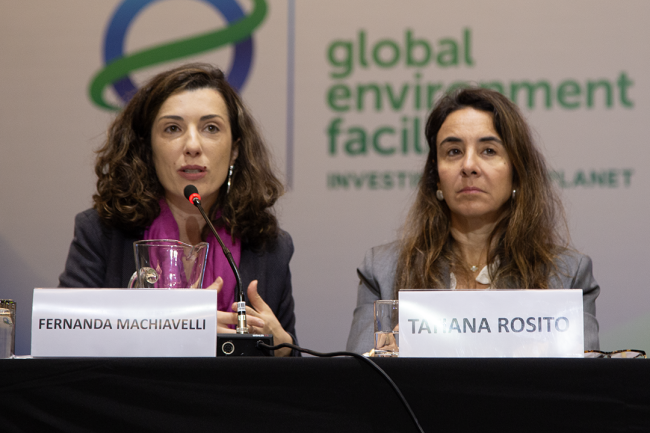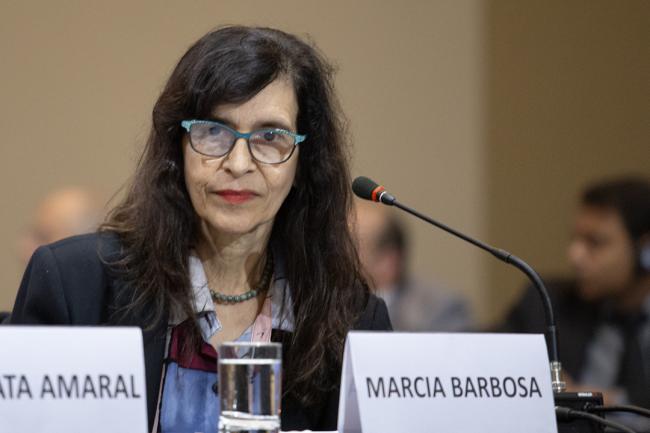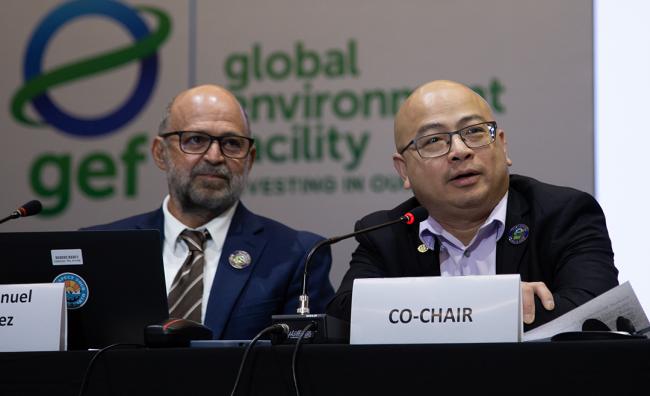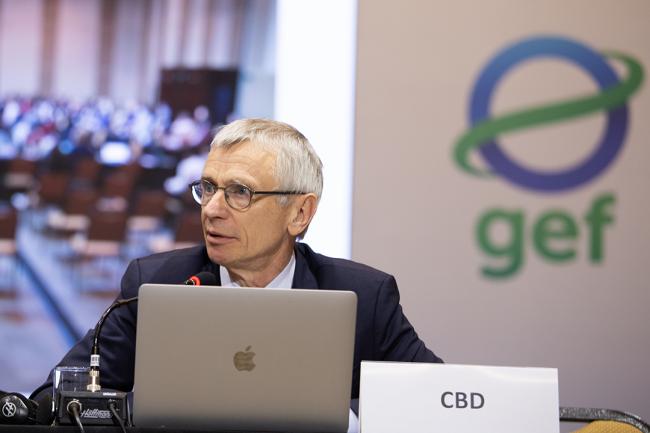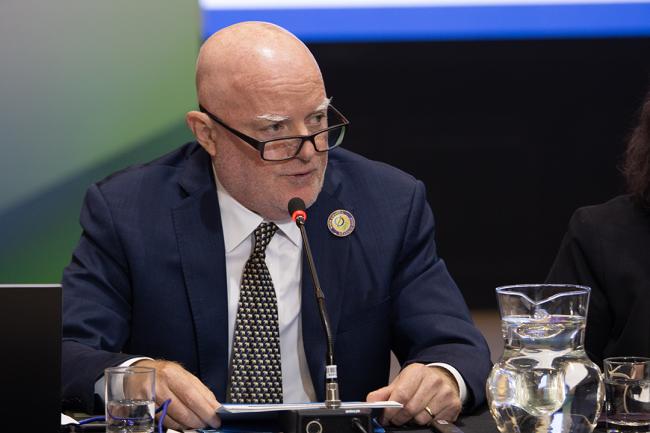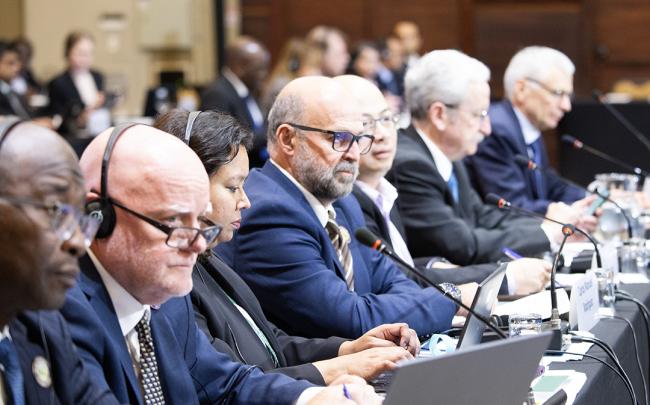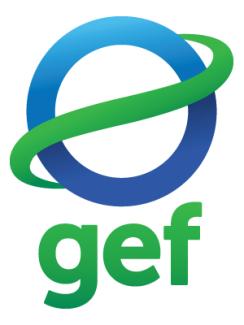The 64th Council meeting of the Global Environment Facility (GEF), the first one to take place outside Washington D.C., started its deliberations in Brasilia, Brazil, with the morning’s opening session featuring many dignitaries from the Government of Brazil.
Opening the meeting, Carlos Manuel Rodriguez, GEF CEO and Chairperson, noted Brazil’s strategic importance, as a mega-biodiverse country and an economic and political powerhouse, in supporting efforts to preserve nature, combat climate change, and promote transformational change. He emphasized the Council’s unique opportunity to combat the triple planetary crisis, and achieve shared prosperity and sustainable development. Underscoring the need for cooperation, he highlighted the importance of discussions under this session’s agenda items on the Work Program and the Global Biodiversity Framework Fund (GBF Fund), and outlined other notable agenda items.
Marina Silva, Minister of the Environment and Climate Change, Brazil, emphasized Brazil’s renewed commitment to combatting the triple planetary crisis, noting the national objective to eliminate deforestation by 2030. She called for democratizing decision-making processes on environmental issues, stressing the critical roles of partnerships and under-represented groups, such as Indigenous Peoples and youth.
Sônia Guajajara, Minister of Indigenous Peoples, Brazil, focused on efforts towards fully realizing the rights of Indigenous Peoples, including protection of Indigenous territories and biodiversity. She underscored the need to support implementation of the Kunming-Montreal Global Biodiversity Framework (GBF), highlighting the contributions of Indigenous Peoples and local communities (IPLCs) as guardians of biodiversity.
Fernanda Machiavelli, Deputy-Minister of Rural Development and Family Farming, Brazil, discussed rural governance, stressing that encouraging sustainable food production is a central national priority for achieving the Sustainable Development Goals (SDGs), and the goals of the Paris Agreement and the GBF.
Ambassador André Corrêa do Lago, Vice-Minister for Climate, Energy, and Environment, Ministry of Foreign Affairs, Brazil, stressed that Brazil is a microcosm of global challenges, highlighting the vision to make Brazil a reference point for global sustainability.
Tatiana Rosito, Vice-Minister for International Affairs, Ministry of Finance, Brazil, underscored the development of an ecological transition plan through the transformation of economic incentives and modes of consumption and production.
Marcia Barbosa, Vice-Minister for Strategic Policies and Programs, Ministry of Science, Technology, and Innovation, Brazil, highlighted Brazil’s transformation of cities with GEF’s support, and underscored the role that biodiversity can play in transitioning to a bio-economy from the current carbon-based one.
Elected Chairperson Tom Bui, Canada, underscored the importance of approving the decision on establishing the GBF Fund with the objective to ratify it at the upcoming GEF Assembly in August 2023, and ensure “adequacy, predictability, and timely flow of funds” in its implementation.
David Cooper, Acting Executive Secretary, CBD, highlighted the GEF Work Program, with its special focus on biodiversity, and stressed that establishment of the GBF Fund will be the first test of the GBF’s robustness.
Highlights of the first day of work included:
- approval of the largest Work Program in GEF’s history, which requests a total of USD 1.4 billion from the GEF Trust Fund, contains an indicative USD 9.1 billion in co-financing, and benefits 136 recipient countries, including 43 least developed countries (LDCs) and 37 small island developing states (SIDS);
- discussion on establishment of the GBF Fund, introduced in detail by Chizuru Aoki, GEF Secretariat; and
- approval of the new GEF Communications and Visibility Policy.
On the proposed Work Program, Council Members discussed:
- disparities in allocation of projects and funding to countries;
- shares of allocations of System for Transparent Allocation of Resources (STAR) and Integrated Program (IP) projects;
- private sector contributions and allocation among agencies;
- strengthening work on pollutants and waste;
- ways to enhance communication among agencies and governments;
- mainstreaming gender issues;
- supporting GBF Targets; and
- the two tranches of the Small Grants Programme.
On establishing the GBF Fund, Council Members engaged in a lengthy and detailed discussion on various aspects of the envisaged Fund. Among other issues, they focused on:
- financing sources, with many delegates highlighting obligations under CBD Article 20 (Financial Resources), as well as the need to attract funding from all sources, including non-sovereign ones;
- facilitating access to resources, including direct access for states;
- the potential creation of a subsidiary body and/or an advisory group or groups to increase and diversify engagement;
- observer selection and participation modalities;
- references to digital sequencing information, pending further work on this issue;
- flexibility regarding the Fund’s structure to ensure it is fit for purpose and adaptable;
- decision making, including governance and voting modalities;
- synergies between climate change and biodiversity; and
- definitions and other concerns regarding mega-biodiverse developing countries.
Discussions on the proposed Fund will continue on Tuesday.
To receive free coverage of global environmental events delivered to your inbox, subscribe to the ENB Update newsletter.
All ENB photos are free to use with attribution. For the 64th Meeting of the GEF Council, please use: Photo by IISD/ENB | Angeles Estrada.
